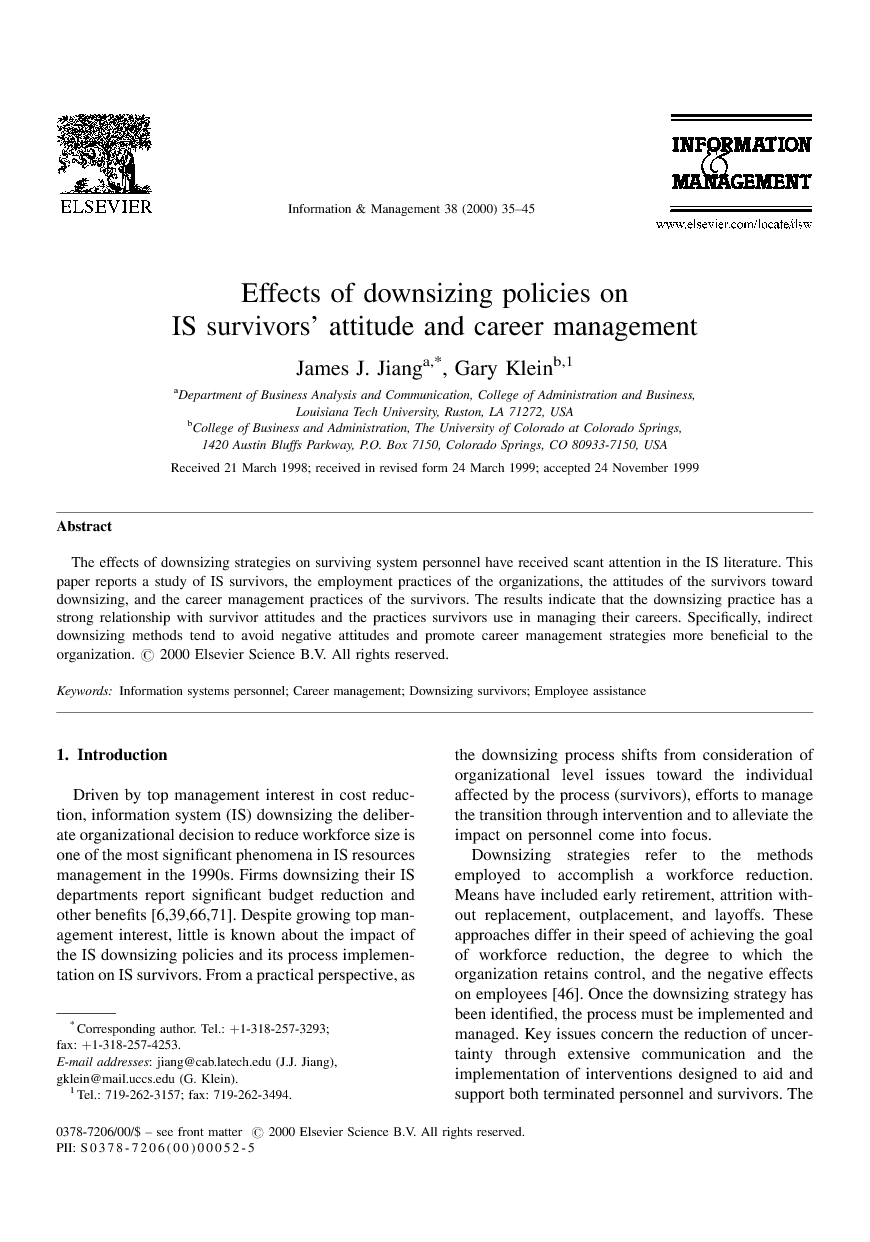ترجمه فارسی عنوان مقاله
اثرات سیاست های کوچک سازی در نگرش بازماندگان IS و مدیریت شغلی
عنوان انگلیسی
Effects of downsizing policies on IS survivors’ attitude and career management
| کد مقاله | سال انتشار | تعداد صفحات مقاله انگلیسی |
|---|---|---|
| 6373 | 2000 | 11 صفحه PDF |
منبع

Publisher : Elsevier - Science Direct (الزویر - ساینس دایرکت)
Journal : Information & Management, Volume 38, Issue 1, October 2000, Pages 35–45
ترجمه کلمات کلیدی
کارکنان سیستم های اطلاعات - مدیریت مشاغل - کوچک سازی بازماندگان - مساعدت کارکنان
کلمات کلیدی انگلیسی

